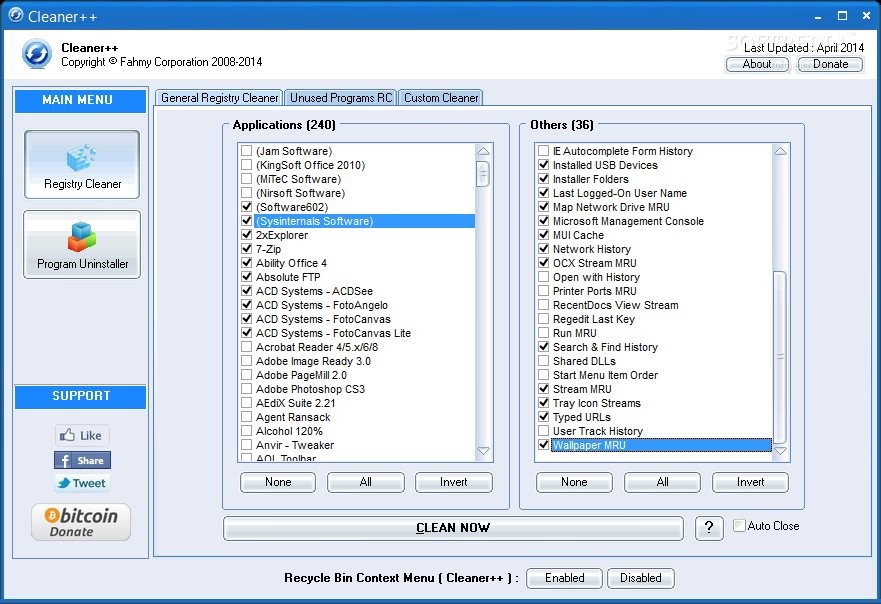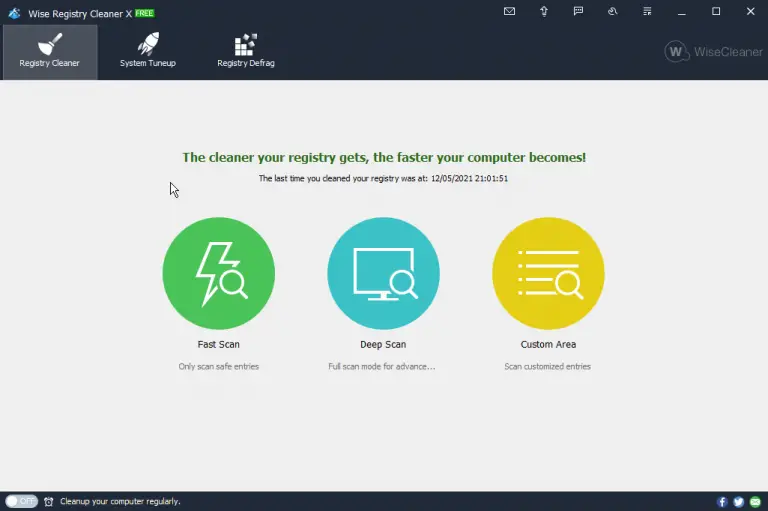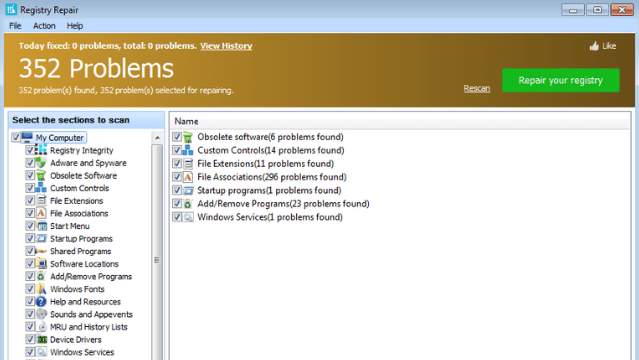
I am personally in the “Not sure” camp since I haven’t seen any research to prove it one way or the other. In conclusion, the majority of the commenter’s do use them and when they do its usually CCleaner. Other “I am not sure” responses said they weren’t sure because there aren’t any studies to back it up so they cannot make an informed decision. Some of the “I am not sure” responses said they do use registry cleaners but cannot see any obvious speed improvements, but it doesn’t hurt to do it anyway. Dont use it indiscriminately and before you do any work with the registry, always back it up beforehand with something like ERUNT. If you use a registry cleaner such as CCleaner or Glary Utilities, take a look through the list of what it is going to do and untick things you arent sure about.
#Reliable windows registry cleaner windows#
Some of the nay sayers also mentioned that most technicians dont fully understand the Windows registry and unless you know what you are doing, you cannot trust an automated program to do it for you. This is known as “Scareware” and even if you believe in good products like CCleaner, you can understand why people believe that registry scanners are modern day snake oil with this kind of advertising going on. Much of the hate towards registry cleaners seems to have been caused by the many questionable products out there with advertisements saying that “You have 1000 critical errors with your registry.


using a Microsoft-supported tool such as PageDefrag), has likewise been de-emphasized due to this increased efficiency, and is largely an automated process under Vista.Īre Computer Technicians following old information? Are we doing something we have always done but never actually tested it on a modern system? The comments left in the previous article were overwhelmingly in favor of registry cleaners, so there is definitely something there. Slowdown due to registry bloat is thus far less of an issue in modern versions of Windows. However this is far less of an issue with NT-based operating systems (including Windows XP and Vista) due to a different on-disk structure of the registry, improved memory management and indexing. On Windows 9x computers, it was possible that a very large registry could slow down the computer’s startup time. While you cannot ever fully trust Wikipedia due to the fact that it is volunteer based, it is usually pretty good. So reducing the size of the registry by removing unneeded entries probably wont speed up the system, as Mark said, removing these entries would only reduce the size of the registry by a few hundred kilobytes.īut what about the contents of the registry keys? not so much the amount of space they take but the fact they are referencing a missing file? I expect there would be some speed improvements there, but I really couldn’t find any data from reliable sources proving this. You might have heard Mark Russinovich before as he is the creator of Process Explorer and Autoruns.Ī few hundred kilobytes of unused keys and values causes no noticeable performance impact on system operation, but I figured it was natural for a Registry cleaner to be an essential part of running a tight ship for the anal retentive systems administrator.

Mark is a widely recognized expert in the Windows operating system internals as well as operating system architecture and design.

One of the few trusted sources I could find was from Mark Russinovich’s blog. I could definitely find many sites talking about the benefits of a registry cleaner, but those sites are either directly selling a registry cleaning product or its a third party site that is making a commission for every registry cleaner product they sell. I spent some time looking for a study from a reliable source on the performance improvements of registry cleaners, but I couldnt find any. Less entries means a smaller registry and therefor makes it load faster right? The registry is a large and complex database of information and there is no doubt that after a while there will be many entries left behind by applications that have since been removed. Lets look a little deeper into each answer: Those who were unsure typically hasn’t really been proven either way or they are unsure of any speed improvements after using one. Those who said No consider registry cleaners as modern day snake oil or find its just better to work on the specific issue rather than a scattergun approach.


 0 kommentar(er)
0 kommentar(er)
